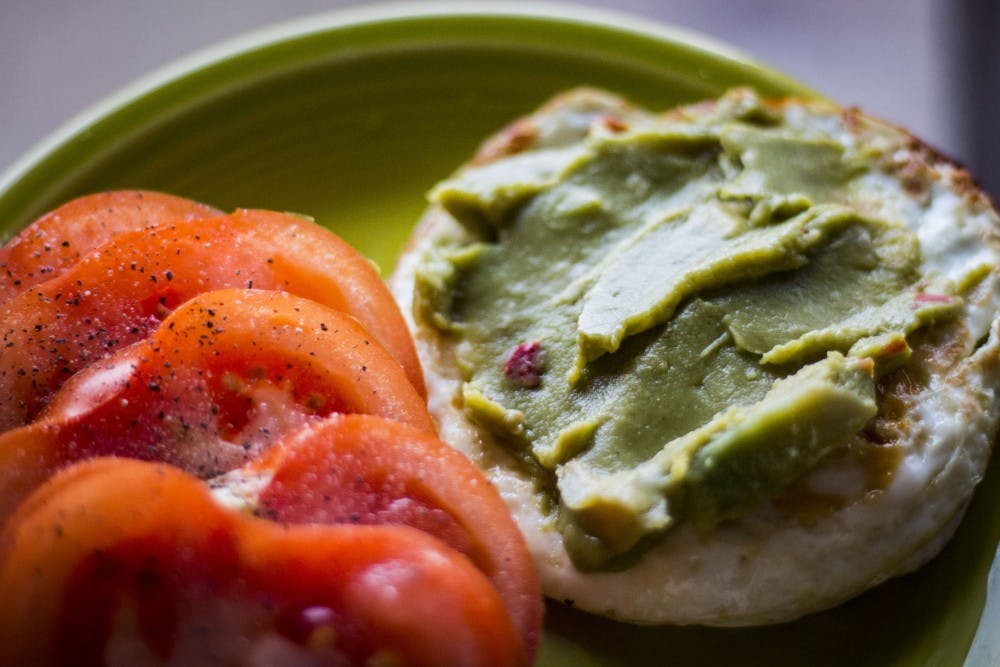A student goes into Woodworth, hoping to grab a quick meal. As they wait in line, dining staff goes out back for extra food. Then, the staff comes inside, changes their gloves and prepares the student’s food away from everyone else.
A quick meal turns into a long process all because the student has Celiac Disease, an autoimmune disorder in which the body attacks the small intestine if gluten is consumed causing vomiting, diarrhea and more.
Celiac disease, which affects 3 million Americans, is only one of the many dietary needs that keeps some students waiting on Ball State dining longer than others, said sophomore legal studies Jasmine Rowsey, who is a vegetarian.
“We are all in college. We don’t necessarily have time to wait to get our food. That’s one of the perks Ball State boasts about with dining is that it’s super easy to go in, grab your food and leave. For vegetarians, people with gluten allergies it’s not that way,” Rowsey said. “Dining is great about being accommodating if you ask in advance, but you don’t always have time for that.”
Approximately 70 percent of items served in Ball State Dining everyday are made with foods that are gluten-free said Karen Adkins, director of dining and dining initiatives. In addition, around 35 percent of its options are for vegetarians and 23 percent are for vegans.
Adkins said dining staff works with students one-on-one to help meet their dietary needs, such as having meals specially prepared for them and ready for pick-up at specific times.
“Making these options available without the need for additional accommodation adds convenience to mealtime,” Adkins said. “Many of our locations focus on custom-built items. Many students with individual dietary needs are able to find safe variety from our existing menus. For example, delis that make custom sandwiches or salads offer a dairy-free cheese in their everyday list of choices.”
However, senior psychology major Emmy Pinckert said she feels like she makes other students wait on her due to the extra food preparation required for Celiac Disease.
“The staff have to wash their hands and prepare the gluten-free food, which can take a while and can create a sense of impatience,” Pinckert said. “I’ve always felt that people would be upset at me because I was holding up the line.”
Pinckert said the extended wait is due to the seriousness of the disease. Gluten-free food cannot be touched by food with gluten, otherwise the gluten-free food becomes contaminated. Pinckert said if gluten is ingested, some of the side effects include vomiting and diarrhea.
“When I went to LaFollette, I would have to watch them make it. I would be like, ‘Can you change your gloves,’’’ said sophomore art education major Ashly Buschatzke, who has Celiac Disease and is lactose intolerant. “If I get gluten on my skin, I actually get contact dermatitis.”
While Buschatzke has noticed dining staff doesn’t always take the right precautionary measures, she feels it does offer a variety of options for gluten-free and lactose free diets.
While there are a lot of options for those with special dietary needs, Allie Hartman, junior and dual classical and cultural language major, said it can be “iffy” finding these food items.
Hartman, along with 780,000 other Americans has Crohn’s disease. In Crohn’s Disease, people can experience a condition called flares when inflammation irritates the digestive tract. When Hartman has a flare, she said she can’t eat lactose, red meat, chocolate, nuts and raw vegetables.
Hartman said she feels like “there is a lot of judgement” when she gets alternative options during her flares.
“The first time I got pizza at Noyer, they had dairy-free cheese and I was super excited ’cause I was like, ‘Cheese! Hooray,” Hartman said. “The lady who was working there got really grumpy. She had to go out to the back, she had to change her gloves and get a whole different thing of cheese. It threw everything out of whack. I felt very singled out and very sad because I just wanted pizza.”
Contact Liz Rieth with comments at ejrieth@bsu.edu or on Twitter at @liz_rieth.





